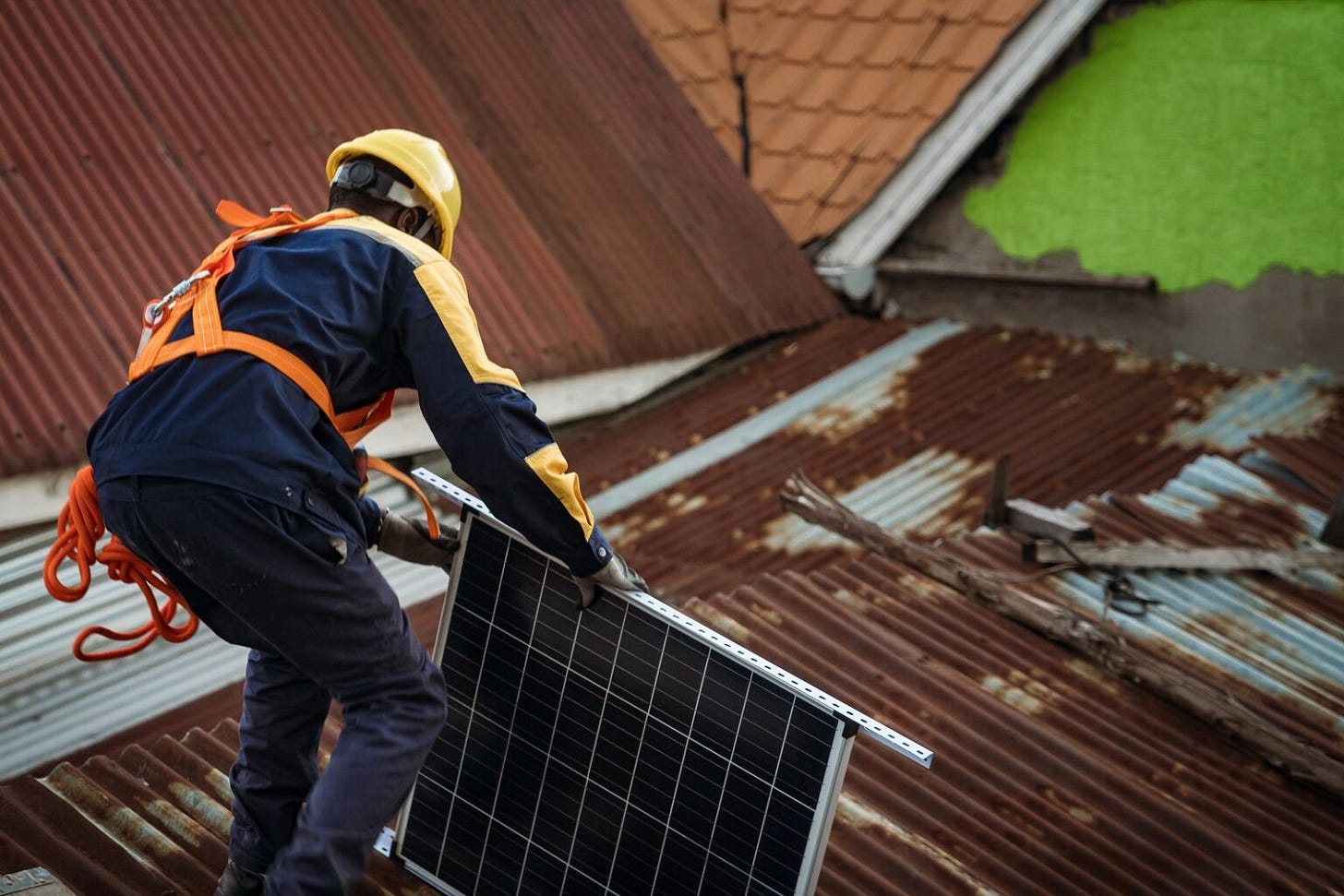
Hello Venturer,
There’s a saying that “A golden key can open any door.” But we’re about to find out, in real-time, whether it’s true or not. The door, in this case, is currency stability, and Zimbabwe is dangling a “golden key” at it.
It’s likely not the first time you’re hearing about Zimbabwe’s weak and unstable dollar. I’d bet that the currency’s weakness was the first fact you ever learnt about it. Even Zimbabweans don’t like using the Zim dollar. They use foreign currency for about 70% of their transactions.
However, the government is desperate to change this. After several failed attempts at reviving its currency, it’s turning to gold. The new strategy is to make gold —the financial world’s safe haven — accessible to everyone. Now it’s making a digital gold-backed currency to speed it up.
Will this “golden strategy” save the Zim dollar? Time will tell.
Oluwatosin Ogunjuyigbe
Staff Writer, Ventures Africa.
What’s new?
Why Zimbabwe is launching a digital gold-backed currency?
What if you could hold a piece of gold in your pocket without ever having to worry about its safety? Well, In Zimbabwe, that would soon be the norm. Zimbabwe’s Reserve Bank (RBZ) recently announced its plan to issue a gold-backed digital currency as a legal tender. Read more.
Beyond a Competition: How Africa’s Business Heroes is creating lasting value for African Entrepreneurs
In 2019, the Jack Ma Foundation established the first Africa’s Business Heroes (ABH) Prize Competition, a charitable initiative that annually identifies, trains, and supports outstanding African entrepreneurs with a US$1.5 million grant. Read more.
Crypto winter: the most popular Africa-focused companies that shut down so far
As of Q1 2022, global VC funding for crypto peaked at $12.3 billion, according to Pitchbook data. However, this reality has quickly changed. Crypto took one of the hardest hits from the 2022 bear market as funding has become hard to secure. In Q1 this year, VCs slashed funding by 80% to $2.4 billion, and the axe didn’t spare African startups. Read more.
Why is Starlink not in South Africa?
Elon Musk’s global satellite internet service has already connected to Mozambique, Rwanda, and Mauritius, with 19 more African countries scheduled for launch in 2023 and 2024. However, it is surprising that South Africa, the continent’s largest internet-consuming nation, is not among them. Read more.
My Pivot Journal: How Isaac Chizaram became a Web3 brand designer
Before Isaac found himself in the web3 space, he dreamt of becoming a dance musician. A few years later and with a degree in fishery, he is building a community to teach African developers and designers about web3. Here is Isaac Chizaram’s pivot journal. Read more.
How South Africa got the bulk share of Netflix’s investment in Africa.
Netflix has been making headlines recently with its plans to expand across Africa. The streaming giant recently released its socio-economic report, showing how well it has done since making its way to sub-Saharan Africa in 2016. Interestingly, South Africa received the most significant share of these investments- about 71% of the total investments went to the SA film industry. Read more.
It is time for a Solar Receivables FinCo?
In the last ten years PayGo – the method of distribution and financing of off-grid solar home systems (SHS) – has revolutionized the effort to bring clean, renewable energy to people in Africa without access to electricity. Read more.
How to stop tech financing drought from impacting agriculture investments in Africa’s innovation economy
Today, there is a familiar narrative one encounters outside of Africa in which food issues on our continent tend to be framed mainly in terms of challenges. But the reality for many young Africans is that food is the source of exciting business opportunities. Many mobile apps like Ayodeji’s ThriveAgric facilitate access to inputs, technical advice, and buyers for 500,000 smallholder farmers in Nigeria. Read more.
Solutions from the frontlines: Catalysing innovative and community-led collaborations
Catalysing Change Week will bring together 5,500 systems change catalysts from over 120 countries around the globe to collectively solve the world’s most pressing problems. The event is hosted annually by Catalyst 2030, the largest global network of social innovators. Read more.
ICYMI: Twitter’s legacy tick, Tanzania’s mining deal, and SSA’s economic shrink.
Last Thursday, many Twitter users said goodbye to its ‘legacy’ blue ticks following Elon Musk‘s controversial decision to switch up the platform’s verification system. In a surprising turn of events, Twitter began reinstating the verification badge to large accounts – accounts with over one million followers – even if they didn’t pay for it. Read more.
Africa’s Business Heroes
Africa's Business Heroes (ABH), an initiative of the Jack Ma Foundation and Alibaba Philanthropy, is calling for Africa's entrepreneurs to compete in its annual business challenge. The initiative seeks to identify, support, and inspire entrepreneurs who are making a positive impact in Africa while building a sustainable economy. Ten finalists will compete for a share of $1.5 million in grant money. Register Here!
Holiday Jollof
Read our special holiday issue on the events, businesses, people, and policies that impacted Africa in 2022. Click to read.
Our weekly collectibles
Iten, a small town in the Great Rift Valley, became the long-distance-running capital of the world. Then, within six months, two élite athletes were found dead. Find out why were two female running champions killed in kenya.
Generative AI is coming for white-collar roles. If your sense of worth comes from work, what’s left to hold on to? Discover Who Will You Be After ChatGPT Takes Your Job?
Sara Petersen’s new book explores the ways influencers shape our ideas about motherhood. Discover how she makes the case against momfluencers.
Is it time to drop the female founder title? Find out why some women want to shake off the gender identifiers.
#VANUGGET








